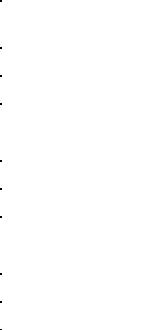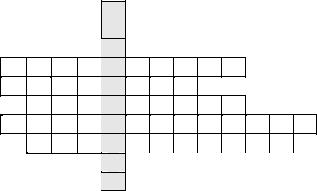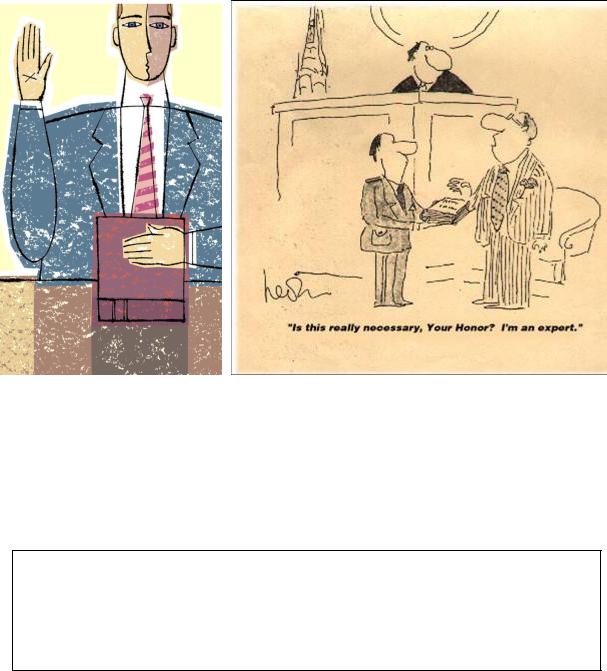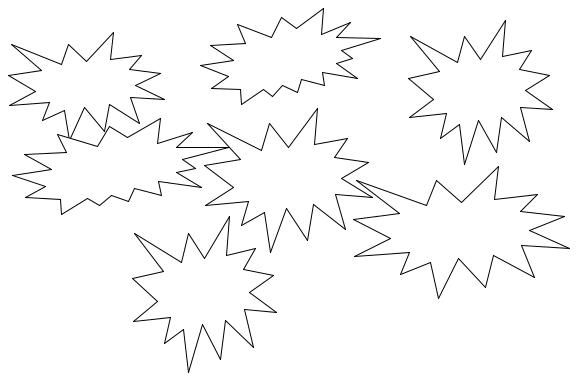|
|
|
|
|
|
) |
, # , |
& , , |
|
. % % $ - |
|
% |
|
) |
. |
|
|
|
|
|
|
|
*, %, * — |
% |
, " (('3 @). ( |
* |
, , |
, , , - |
- |
. % % - |
. > $
|
|
|
|
|
|
|
|
|
|
|
|
|
|
" & *, |
$ |
& . |
|
, |
|
%- |
, $ " . |
|
|
|
|
- % |
|
% |
, |
- |
|
$ , & |
, - %- |
. ( |
$ |
- |
|
, |
|
& , |
|
, |
|
|
|
) . 3- % |
|
|
, " $ $ &. |
|
|
|
|
|
- % |
, , |
, $ |
|
, - |
. 2 - % |
- |
( |
, ), " ). |
|
|
|
|
|
|
&- % - %- |
, |
& % |
, |
$ - , % |
. |
" % " |
, |
: |
) |
|
; ) &- ); |
) |
) $ %. |
|
|
|
|
|
|
|
|
# -% % " |
- % . |
) - |
-& |
", |
$ , " |
, $ " " & -
UNIT 5. TEST YOURSELF
1. % & . , .
:
1)A big picture man who can help to reconstruct a crime.
2)Something legally submitted to a tribunal to ascertain the truth of a matter.
3)Science deals with production, distribution and use of wealth.
4)Solving crimes, examination.
5)Practical use of sciences in industry and building.
: globally accepted misnomer to forensic science.
G
E
E
I
E
2. .
Forensic science dates as far back as 212 BC, and the earliest account of using fingerprints for the purpose of establishing identity, as far back as the 7th century.
During the Roman Empire, a criminal charged had to plead their case before a group of their public peers. Both the accuser and the accused would give their side of the story. The individual with the best debate (argumentation and delivery) skills would determine the case's outcome. The person with the best forensic skills won, much like lawyers and attorney do, today.
The first written account of combining entomology and medicine for acquiring an analyzing criminal evidence to solve cases has been attributed to a Chinese book, written in 1248, by Song Ci which translated in English to "Collected Cases of Injustice Rectified".
In one account, the case of a sickle murder was solved by a forensic science investigator of the time who instructed everyone to bring their sickles to a specific location. Flies gathered on the sickle with the blood, and ultimately the killer confessed and was brought to justice.
3. , .
The earliest report on the application of special knowledge in medicine and entomology for investigation of crimes was given in a Chinese book, written in 1248.
a)true
b)false
c)there is no information in the text.
4., # # .
1.There are a lot of historical examples proving the fact that forensic science can help in solving crimes.
2.Forensic science has a long history.
3.The word “forensic” originated from Latin.
5. ! -.
In the ancient Roman Empire, the Senate used to conduct its meetings in (1. ) called the forum. Anyone who wanted could listen to the great (2. ) of the day and watch government in action. The term (3. ") means "of the forum." In the broadest sense, then, (4. ) can be defined as the methods of science applied to public matters. Today we
272
use the term to mean the methods of science applied to matters involving (5. ). In the United States and most other countries, the justice system deals with either (6.& ). Forensic science has its most important applications to the (7. ), and this has been the fuel for the current media type seen in books, TV shows, and movies.
GLOSSARY
1. degree -
Associate ~ - ) $ # $
Bachelor’s degree – $ Master’s degree – $
MSFS ~ (Master of Sciences in Forensic Science) – $ " %
law degree – $ undergraduate ~ - $
to earn a degree – $ $
to pursue a degree – $ $ $
2. forensic science - #. ! ,
Forensic science laboratory - -" % Forensic Science Center - %- "
Forensic Sciences Foundation - %
Office of Forensic Sciences - %-
3.forensics - ; ! $
computer forensics - $ - % forensics analyst - %-
Internet Forensics - $ % @
Windows Forensics - % % " " Windows
4.forensic - !;
~accounting expert examination - - %
~analysis - "
~anthropologist - -"
~audit - - %
~engineer - &
~document examination - %
~expert - " %
~expert institution - -% &
~facial reconstruction - -%
~ information - %
~laboratory - " %
~pathology -
~photography - # #
~psychiatric examination - - %
~psychiatric expert examination - - %
~psychiatry -
~psychology -
~report - " %
~science laboratory - -" %
~statistics -
~testimony - %
computer ~ analysis - $ - %
5.generalist - ; ; & ! ,
$ & ; & ; ( ) - !' -
; ; !'
6.record – (#) =; ( -
, , ); ; =
forensic ~ - %
7. sample – !$, !
blood ~ - by ~ -
collect ~s – $ describe a ~ - $ handle a ~ - $ process a ~ - $ store ~s – $
contamination of the ~ - origin of the ~ - &
8. technician – $
engineering- ~ - &-"
evidence ~ - " $
9. technique – !, ,
classification ~s – # |
|
criminalistics ~s – " % |
microscopic examining ~s – |
|
psycholinguistics ~s - -
MODULE 10
LAW AND SCIENCE
UNIT 1. ETHICS AND MORALS
“I swear to tell the truth”. |
“Is this really necessary, Your Honour? I’m an expert. “ |
1. , ! $ -
, ! #' ! . ,
. % & , (- & #.
1. , 2. , 3. -
, 4. ! & ,
5. 6. , 7. -
, 8. ! 9. ,
10. ,
Empathy: the ability to communicate understanding of another person’s experience from that person’s perspective.
275

Sincerity: a personal commitment to consistency between what is professed and what is done.
Integrity: commitment to being moral in dealings with others, personal straightforwardness, honesty and coherence.
Resilience: the capacity to work with the client’s concerns without being personally diminished.
Respect: showing appropriate esteem to others and their understanding of themselves.
Humility: the ability to assess accurately and acknowledge one’s own strengths and weaknesses.
Competence: the effective deployment of the skills and knowledge needed to do what is required.
Fairness: the consistent application of appropriate criteria to inform decisions and actions.
Wisdom: possession of sound judgment that informs practice.
Courage: the capacity to act in spite of known fears, risks and uncertainty.
2. !$ #' , #'
, .
NOUN |
ADJECTIVE |
ADJECTIVE |
|
|
with negative meaning |
|
|
|
empathy |
friendly |
cold |
|
|
|
|
|
insincere |
|
|
|
integrity |
incorruptible |
|
|
|
|
|
|
disrespectful |
|
|
|
|
humble |
arrogant |
|
|
|
|
competent |
|
|
|
|
resilience |
consistent |
|
|
|
|
fairness |
|
|
|
|
|
|
|
unwise |
|
|
|
|
brave |
|
|
|
|
3. , ! # ! #,( & #, ! . + ! &
!$ , #.
either... or - ...
neither... |
nor |
- ... |
|
both ... |
and |
- ... |
|
as well as |
- & |
not only ...but |
- $ ... |
4. : ) « » « -
»: !) -
.
The difference between ethics and morals can seem somewhat arbitrary to many, but there is a basic, albeit subtle, difference. Morals define personal character, while ethics stress a social system in which those morals are applied. In other words, ethics point to standards or codes of behaviour expected by the group to which the individual belongs. This could be national ethics, social ethics, company ethics, professional ethics, or even family ethics. So while a person’s moral code is usually unchanging, the ethics he or she practices can be other-dependent.
When considering the difference between ethics and morals, it may be helpful to consider a criminal defense lawyer. Though the lawyer’s personal moral code likely finds murder immoral and reprehensible, ethics demand the accused client be defended as vigorously as possible, even when the lawyer knows the party is guilty and that a freed defendant would potentially lead to more crime. Legal ethics must override personal morals for the greater good of upholding a justice system in which the accused is given a fair trial and the prosecution must prove his or her guilt beyond a reasonable doubt.
5. ! . ,
.
Models: |
|
|
I fully agree with the statement |
# . |
I am afraid, I can’t agree with it because |
* #, |
, |
|
… |
|
I am keeping an open mind for the moment |
|
|
|
|
I’m (not) sure that |
6 ( ) , … |
|
1.Morality is like economics. You have to tend to everybody's interest; the difficulty is in striking the right balance.
2.Morality is about behaving in ways that set a good example.
3.In order to be moral you have to pay close attention to the impact of your decisions.
4.When faced with a moral dilemma, I usually listen to my own conscience.
5.By and large, morality is about doing what feels right.
6.Dignity is a big part of my morality. Certain things I will not do, no matter what the stakes are.
7.Morality is about living with a high standard of conduct.
8.If only people listened to their inner voice, they would make better moral choices.
9.In order to live morally in your day-to-day, you have to constantly step out of your shoes.
10.I don’t care what other people do in private, as long as they don’t hurt others.
11.Morality is about helping others and not harming them.
12.In a way, morality is like art. When you see something, you know how you feel about it.
13.If only people cared more about each other, they would make better moral decisions.
14.The point of morality is to end suffering and promote happiness.
277
15.As far as morality goes, my goal is to care about all people equally.
16.At the end of the day, good moral decisions are those decisions you can live with.
UNIT 2. LAW AND SCIENCE
1. .
TEXT
LAW AND SCIENCE
The philosophical foundation of the criminal justice system remains to protect the innocent and to ensure that the truth emerges for any matter before the court, thereby ensuring that justice is done. While crime laboratory scientists may pride themselves as being "independent finders of fact," most operate under police jurisdiction or administration, and many scientists, perhaps unconsciously, develop the attitude that they work exclusively for the best interest of the police or the prosecutor.
When emotions overcome reason, a zealous forensic scientist may intentionally or inadvertently deny real justice. Results are misinterpreted, or worse, falsified. Such science may not be easy to spot, since it can only appear through the results of the scientific investigation. While no one can ever attain anything close to a perfect harmony of reason with emotion, forensic scientists at least have a political duty to strike the best balance possible under life's most difficult circumstances. Of course, completely satisfying this duty remains both difficult and elusive. The commitment to ethics should be stressed in the education of a forensic scientist. The values inherent in "good science," including both these moral elements and the nonmoral elements distinguishing reliable from unreliable scientific practice, should be a part of official forensic scientific curricula.
In the practical world, only the competence and rigorous honesty of the individuals preserve the philosophical basis of the criminal justice system designed to protect the innocent and expose the truth about complex actions. The system works if, and only if, morally honest individuals hold key positions of power.
Without high ethical standards, forensic scientists may become what is known in the profession as hired guns*. The student considering this profession should resist the temptation of selling whatever opinion is needed by defen e or prosecution. Properly educated, experienced scientists may also act as gunslingers** through ignorance or misapplication of method. This might involve purposefully omitting relevant tests or suppressing relevant results. Many such experts may develop an entirely unjustified sense of their own scientific abilities and observational powers.
In the real forensic sciences, individual scientists always work as members of a larger team, perhaps with other specialized scientists, law enforcement investigators, prosecutors, defen e attorneys, judges, juries and the media, each contributing his or her efforts toward the bigger picture of a public trial, or an investigation capturing the public interest. The job of a forensic scientist is not one of glamorous celebrity***.
Notes:
* hired guns - a person, especially a professional killer, employed to kill-someone. The noun gun has been slang for a professional criminal since the mid-1800s.
**gunslinger, is a 20th century name, used in cinema or literature, referring to men in the American Old West who had gained a reputation as being dangerous with a gun.
*** a celebrity is a person who is easily recognized in a society or culture.
2. , .
, - , , |
" , |
, |
# $# $, , |
" - |
, $ % ", |
" , ), & ( ), - |
$ , , & , " .
3. .
1.to protect the innocent
2.to ensure the truth
3.to operate under police jurisdiction
4.to develop the attitude
5.to do justice
6.to deny real justice
7.to strike the best balance
8.to distinguish reliable from unreliable scientific practice
9.to omit relevant tests
10.to contribute his or her efforts
4./
.
1.When emotions overcome reason, ………………. .
2.Most crime laboratory scientists operate under ……………… .
3.Forensic scientists at least have a political duty …………………. .
4.The values inherent in "good science,"………………….. .
5.The system works if, ……………….. .
6.………………….. what is known in the profession as hired guns.
7.Properly educated, experienced scientists may also act as ………………. .
8.The job of a forensic scientist is …………………. .
5.% ! (3 -4 ). * !'
$ !$ . -
.
!. ! !" , - & !. !.
6..
|
|
|
|
|
|
1. expert |
2. forensic scientist |
3. justice |
4. trial |
5. judge |
6. prosecutor |
7. ethics |
|
|
|
a)Public official vested with the authority to hear, determine, and preside over legal matters brought in court.
279
b)Government attorney who presents the state's case against the defendant in a criminal process
c)A person who applies scientific knowledge and methodology to legal problems and criminal investigations.
d)Branch of philosophy that seeks to determine the correct application of moral notions such as good and bad and right and wrong
e)The upholding of what is just, especially fair treatment and due reward in accordance with honor, standards, or law.
f)A person with a high degree of skill in or knowledge of a certain subject.
g)Examination of evidence and applicable law by a competent tribunal to determine the issue of specified charges or claims.
7.!$ ' , -
. ( +-
(Wikipedia).
|
Emotion |
|
Reason |
2 |
Honesty |
|
1 |
|
3 |
Celebrities |
Harmony |
|
4 |
|
5 |
|
|
|
|
|
Temptation |
|
|
7 |
|
Morals |
|
|
6 |
|
8. # #- ' ' . (
. , , .
Models:
Hmm, I’m not sure, but … - , , …
I’m of two minds, but … - , #, &, …
I can’t make up my mind, but … - , &, …
I don’t think it’s reasonable to believe that … - 6 #, ,
…
I absolutely agree that …- 6 ! # , …






